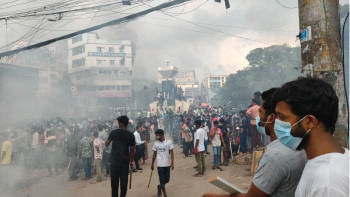The crisis of wastage

From my flat on the 5th floor, I could hear a beggar beseech anyone who would care to listen for alms. I had enough cash in the house, and even food, to give him. But going all the way down to the street to meet him was not a plausible option for me for several reasons. Feeling guilty was the best I could do. His need and my intention were both betrayed by a faulty supply chain.
We have food on our table because, down the line, farmers fared well in fair weather and were able-bodied for labour. Then followed effective collection, storage and transportation, due to which the produce reached the market, and we were able to purchase them. At every step, there was a forward button that ensured that the food reached us within its shelf life. But food cannot always make the right journeys.
Due to ineffective distribution chains, while some of us are feasting—and perhaps shamefully wasting—there are millions who are half-starving, if not fully. Pictures of children searching for food in waste bins have shocked us, but not many of us have been awakened.
Erroneous misconnections between the beginning and literally "the end" has led to about one-third of the world's produced food go to waste. According to The World Counts, approximately 1.3 billiotonnes of food manufactured for human consumption worldwide gets wasted every year. Edible items are lost at every step of the food "life cycle": farming fields, agricultural production, post-harvest handling, storage, processing, distribution, consumption, and end of life. But a lot of it is wasted by us fortunate ones. Keep an eye on the food—or how much it is wasted—at the next wedding you attend. If the surplus of food could be channelled to the hungry, we would have millions of happy people—mostly mothers and children. And we, too, could be happier.
Every now and then, we come across real-life tragedies that we think we could have avoided. More simply said than done. Every Eid, it is not unusual to read news about how a rickshaw-puller father could not afford a Tk 100 red frock for his daughter. She could not bear the pain and humiliation in the midst of her friends, all agog with new clothes. She then unfortunately took her own life. Our hearts were not ripped by this tragic loss, because we are that much strong.
We have thousands—nay, hundreds of thousands—of red frocks lying around in our wardrobes, but the supply chain has failed again. Now, each of us wanted to give her an Eid gift, and even more, but she did not want to hang about to be gifted with our pity. She thought her father had failed her, but she would never know that we did.
Lehengas, wherever that came from, are expensive, going by hundreds of thousands of taka. Sarees are similarly pricey. Modest ones cost several thousands. The red frock that the 10-year-old girl had her eyes on had a price tag of Tk 500. We cannot say "just 500," because that much was now the whole world's worth for her father.
The 12-year-old boy came home to a bed of tattered papers on the pavement beside a busy avenue in the capital. He had a long day, trying to find some money for himself and his mother. She was finishing up making the bed by dusting off pebbles and dried mud. The boy placed his head into the comfort of an imaginary pillow that many of us do not find in a spring mattress.
On the other side of disparity, some people have five-bedroom residences, or even larger houses, if you can call them home. What the boy on the street would find really obnoxious are 150-room buildings for a dozen or so occupants. That, too, if perchance the family was not holidaying in the Bahamas. Mercifully, the lad does not watch television, because he would be disoriented by the amazing tales from around the world.
Electricity is not wasted that much, because we have to pay for it. But, you will see a light switched on in the stairwell at 11 am. Switch it off. Water is regularly misused because it is cheap. But, even in this day and age, there are long queues to collect drinking water in our cities and towns. Stop the running tap when you don't need it. Metering has somewhat reduced abuse of cooking gas. The most effective meter is our own conscience.
Okay, unlike almost every other pundit on our LNBT shows, I would not want to complain only. Nor would I want to impose myself with ideas that I did not care to implement when I had the authority to do so. That is a direct reference to some of the retired government officers, who now say that this kora uchit, and that is a bhoyongkor mistake. On the contrary, I would really urge you to stop and take a hard look at our current living style. The solutions lie in us—what we will do or not do next. We don't have to get down from our fifth floor residence to give alms, but we can try to find more permanent measures to mitigate need and hunger.
Collective efforts are also ever so effective. That is why clubs, societies and associations are necessary in society. Places of worship, too, can play their part in spreading charity and compassion. There are great examples in the community. We only have to follow, or be more imaginative.
Every taka makes a difference, every drop of water matters, and each small step is a giant leap.
Please, please, someone ask me what I meant by LNBT above. I have to tell you, even if you don't: Late night, big talk…
Dr Nizamuddin Ahmed is an architect and a professor, a Commonwealth scholar and a fellow, Woodbadger scout leader, Baden-Powell fellow, and a Major Donor Rotarian.

 For all latest news, follow The Daily Star's Google News channel.
For all latest news, follow The Daily Star's Google News channel. 



Comments